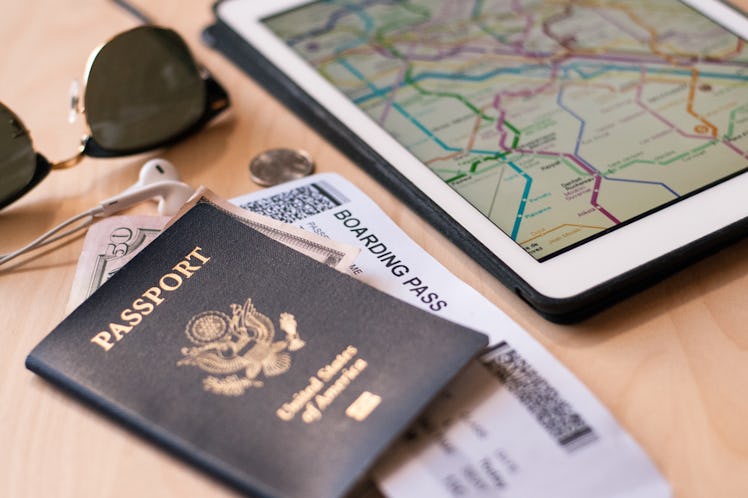
This Is The One Major Factor To Consider Before Deciding To Try Long-Distance
When I decided to try a long-distance relationship with my now ex-boyfriend, we were both nervous about how often we would be able to see each other. This was a big reason why we chose not to officially define the relationship at first, but we ultimately felt that what we had was important enough to pursue exclusively. While we thought we were aware of the difficulties that come with LDRs, I don't think either of us really considered the fact that long-distance relationships are expensive. Like, really expensive.
We planned visits early on, but the 10-hour drive between our colleges soon became a point of contention for us. It wasn't that he didn't want to see me, he'd say. It was that he couldn't afford to fly or take two different buses there (and two back). The situation escalated, culminating in a huge fight just before my birthday. He claimed he didn't have the funds to come up that weekend, even though he knew how important it was to me. This led to an argument over who cared more about the relationship. We eventually broke up, and while there were definitely other contributing factors, money was no small obstacle in our LDR.
Finances shouldn't be the deciding factor in a relationship, but money can put a strain on couples — especially those who can't see each other as often as they'd like. Before committing to a long-distance relationship, it's important to consider whether or not you have the resources required to visit each other on a regular basis. Especially if you need to fly, travel can get expensive. Here are three things to think over and talk about with your partner before deciding to go long distance.
Is Your Level Of Commitment The Same?
It's important to feel secure in your long-distance relationship. Before you part ways, talk through the "what ifs." If you have any doubts about your partner's level of commitment, that could be a red flag. You'll both need to be committed to making sacrifices in order to make an LDR work. If one of you is always traveling to the other, that can create an imbalanced dynamic and lead to resentment. Consider meeting in the middle or establishing a rotating schedule so that you are both making an equal amount of effort in the relationship.
Have You Made A Concrete Plan?
Knowing exactly when you'll see each other next is vital in a long-distance relationship. Before you go your separate ways, make a plan for when you'll meet up. If you always have a concrete date to look forward to, you'll both feel much less anxious about the future of your relationship. Whether this get-together is weeks or months away, it's important to decide ahead of time when and where you will reunite next. When it comes to LDRs, the less uncertainty, the better.
Are You Working Toward A Shared Goal?
The goal should be to eventually live in the same place. Whether one of you is in school or you're both working in different cities right now, you should be able to envision a point at which you can someday call the same spot home. If this isn't viable in the foreseeable future, you may want to reevaluate your individual and shared objectives. Having a goal to look toward when times get tough will make all the struggles of a LDR feel worth it in the end.
A long-distance relationship should be a cooperative effort. If one person feels like they are putting in more money, time, or effort, then it may not last. You both need to be willing to make sacrifices, save up, and prioritize the other person. As long as you're both actively working toward the goal of eventually living in the same place, it is possible to make a LDR work.